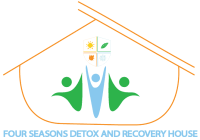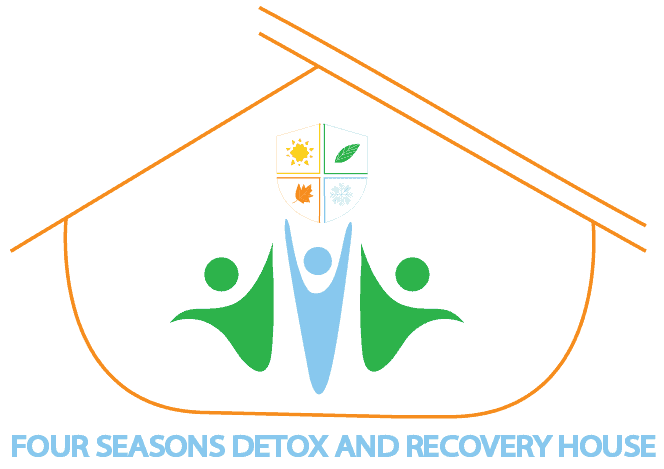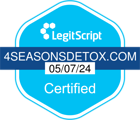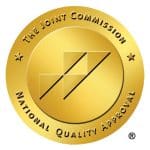Breaking an addiction is a challenging and complex journey that varies for each individual. While some may believe the myth that it takes just 21 days to break an addiction, the reality is far more complicated. In this article, we will delve into the science behind addiction, the timelines for different substances, and the factors influencing recovery to answer the question: How long does it take to break an addiction?
Understanding Addiction
Definition and Difference Between Habits and Addictions
Addiction is a chronic disease characterized by compulsive drug seeking and use despite harmful consequences. Unlike habits, which involve behaviors we can control, addiction often strips individuals of their ability to make rational decisions due to its profound impact on the brain’s reward system.
Types of Addictions
Addictions can be broadly categorized into substance addictions (such as alcohol, opioids, and cocaine) and behavioral addictions (like gambling or internet use). Each type presents unique challenges and timelines for recovery.
The Science Behind Breaking an Addiction
Neurochemistry of Addiction
Addiction alters the brain’s chemistry, particularly affecting the prefrontal cortex, which is responsible for decision-making and impulse control. Prolonged substance use disrupts normal brain function, creating a dependency that makes quitting extremely difficult.
The Detox Process
The first step in breaking an addiction is detoxification, where the body rids itself of the addictive substance. This process typically lasts 7 to 10 days but can vary based on the substance and the individual’s overall health. During this period, withdrawal symptoms can range from mild to severe, depending on the addiction’s nature and duration.
Withdrawal Symptoms
Withdrawal symptoms are a significant challenge in the detox phase. These can include anxiety, depression, irritability, and physical symptoms like nausea and tremors. Managing these symptoms often requires medical supervision, especially for substances like alcohol and opioids, where withdrawal can be particularly intense.
Timeframes for Different Addictions
General Timeline
While each individual’s journey is unique, research indicates that significant progress often requires a minimum of 90 days. This period allows the brain to begin healing and new, healthier habits to form.
Substance-Specific Timelines
- Alcohol: Detoxing from alcohol usually takes about 7 days, but full recovery and brain resetting can take months. Cravings and psychological dependence may persist, requiring ongoing support and therapy.
- Opioids: According to the National Institute on Drug Abuse, effective treatment for opioid addiction often requires at least 12 months. This extended period helps address both the physical dependence and the psychological aspects of addiction.
- Cocaine and Marijuana: Withdrawal from cocaine can last several weeks, with cravings persisting for months. Marijuana’s withdrawal symptoms can taper off after 20-30 days, but traces of the substance can remain in the body for up to 90 days in chronic users.
- Behavioral Addictions: Like substance addictions, breaking behavioral addictions such as gambling or internet use requires significant time and effort. The timelines are similar, often requiring months of dedicated therapy and support.
Factors Influencing Recovery Time
Individual Differences
Several personal factors influence how long it takes to break an addiction:
- Age, Genetics, and Health: Younger individuals or those with a genetic predisposition to addiction may face longer recovery times. Overall health also plays a critical role.
- Severity of Addiction: The longer and more intense the addiction, the more challenging the recovery process. Heavy or prolonged use typically requires extended treatment.
- Support Systems: Having strong support from family, friends, and professionals can significantly impact recovery speed. Engaging in support groups and therapy can provide essential encouragement and accountability.
- Treatment Programs: The type and quality of treatment programs also affect recovery. Inpatient vs. outpatient rehab options vary in intensity and support, with inpatient programs generally offering more comprehensive care.
Effective Treatment Strategies
Professional Help
Seeking professional help is crucial in breaking an addiction. Specialized treatment centers provide medical supervision during detox and offer structured programs to address both physical and psychological aspects of addiction.
Therapies
Various therapies can aid recovery, including Cognitive Behavioral Therapy (CBT), Dialectical Behavior Therapy (DBT), and 12-step programs. These therapies help individuals understand and change their behaviors, develop coping strategies, and build a support network.
Ongoing Support
Long-term recovery often requires ongoing support to prevent relapse. This can include regular therapy sessions, support groups, and family involvement. Dual diagnosis treatment is essential for those with co-occurring mental health issues, addressing both conditions simultaneously for a more effective recovery.
Long-Term Recovery
Lifestyle Changes
Recovery is not just about quitting the substance but also about making significant lifestyle changes. Developing new, healthy habits and finding new ways to fill the time previously occupied by the addiction are crucial steps.
Coping Mechanisms
Learning effective coping mechanisms to handle stress and cravings is vital. Techniques such as mindfulness, exercise, and engaging in hobbies can help maintain sobriety.
Relapse Prevention
Preventing relapse requires continuous effort and vigilance. Staying connected with support groups, attending therapy sessions, and maintaining a healthy lifestyle are critical components of long-term recovery. Understanding the 6 stages of alcohol recovery can provide a roadmap for maintaining sobriety.
Conclusion
So, how long does it take to break an addiction? Breaking an addiction is a multifaceted and prolonged process that varies for each person. While initial detox can take about a week, full recovery and the establishment of new habits often require at least 90 days and, in many cases, much longer. Factors such as the type and severity of the addiction, individual health, and the quality of support systems all play crucial roles in determining the timeline for recovery.
Encouragement and Resources
Despite the challenges, breaking an addiction is possible with the right support and commitment. For those struggling with addiction, seeking professional help is a vital first step. Drug detox programs, luxury detox centers, and ongoing support systems provide the necessary tools and environment for a successful recovery journey.
Remember, recovery is a lifelong commitment, but with perseverance and the right resources, a fulfilling and sober life is attainable. If you or someone you know is struggling with addiction, reach out for help and begin the path to recovery today.
FAQs
How long does it take to break an addiction to alcohol?
Breaking an addiction to alcohol typically involves a 7-day detox period, but full recovery can take several months. Factors like the duration of addiction and individual health play significant roles.
What is the 90-day rule in addiction recovery?
The 90-day rule suggests that significant recovery progress often requires at least 90 days of treatment. This period allows the brain to begin healing and helps establish new habits.
Can addiction be fully cured?
Addiction is considered a chronic disease, meaning it cannot be fully cured but can be managed successfully with ongoing treatment and support.
What is the role of therapy in addiction recovery?
Therapy is crucial in addiction recovery as it helps individuals understand and change their behaviors, develop coping strategies, and build a support network.
Why is professional help important in breaking an addiction?
Professional help is vital because addiction often involves complex physical and psychological components that require specialized treatment and medical supervision.
How does dual diagnosis treatment help in addiction recovery?
Dual diagnosis treatment addresses both addiction and co-occurring mental health issues simultaneously, providing a more comprehensive approach to recovery.
What is the difference between inpatient and outpatient rehab?
Inpatient vs. outpatient rehab: Inpatient rehab offers a controlled environment and intensive care, while outpatient rehab provides more flexibility and allows individuals to continue with their daily activities.
How long does detox take?
Detox generally takes about 7 to 10 days but can vary depending on the substance and the individual’s health. Drug detox programs provide medical supervision during this critical phase.






